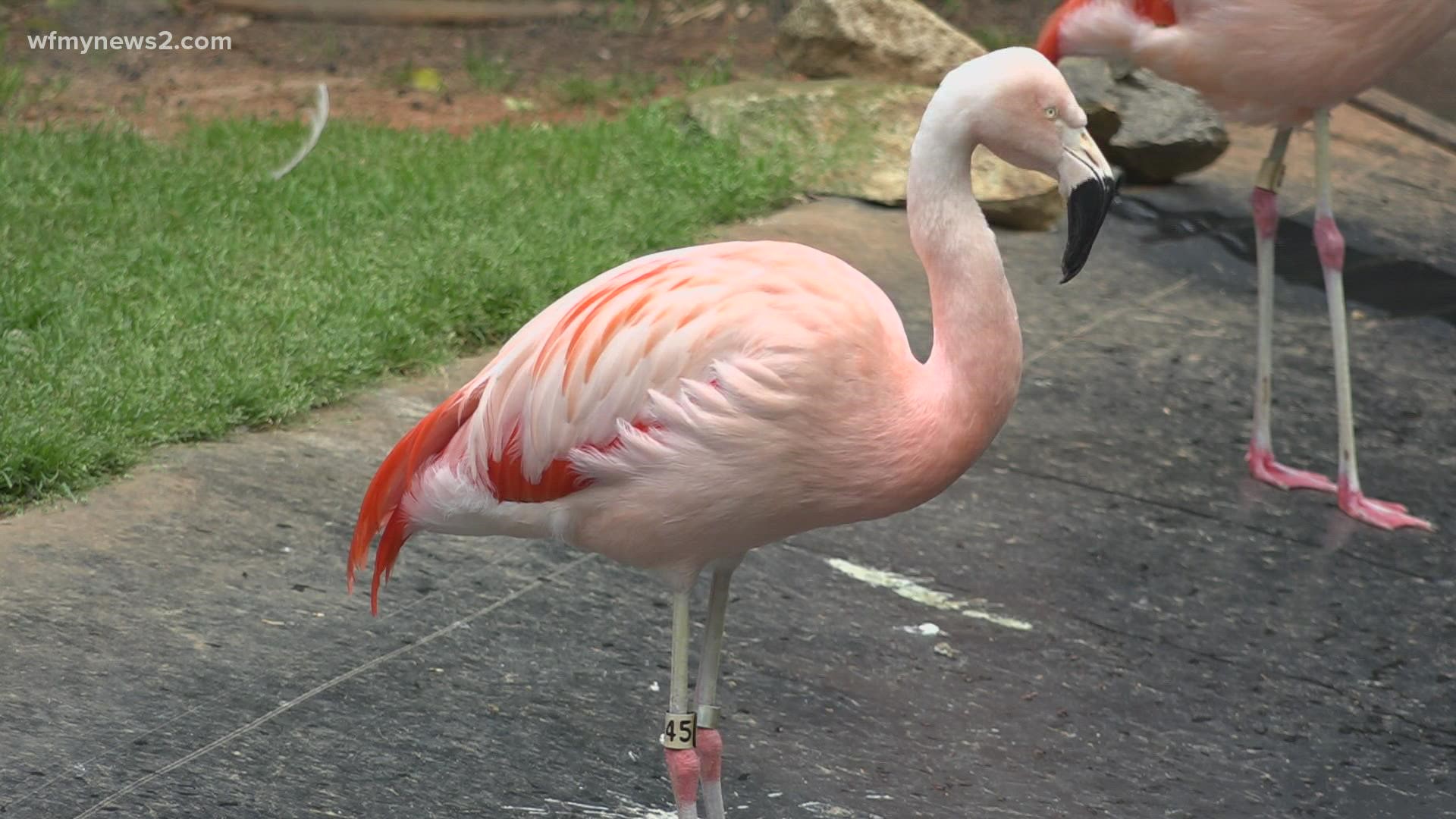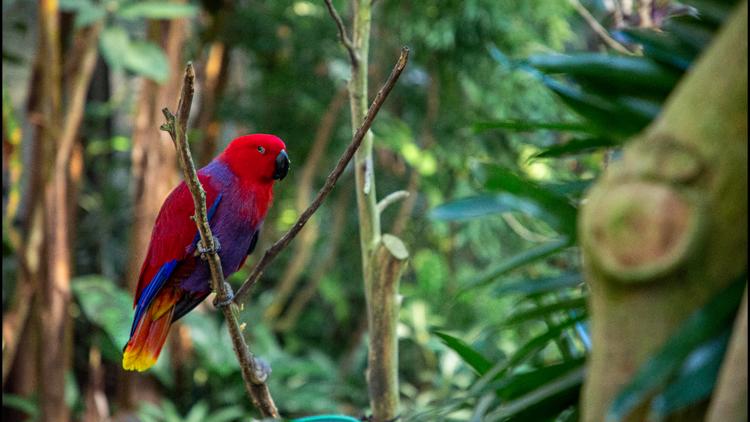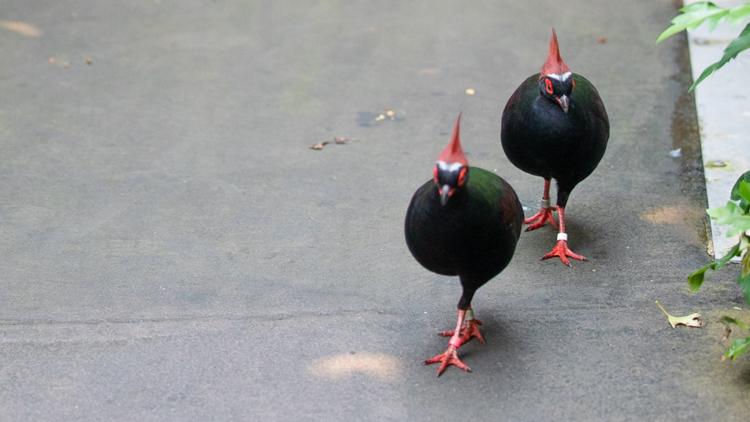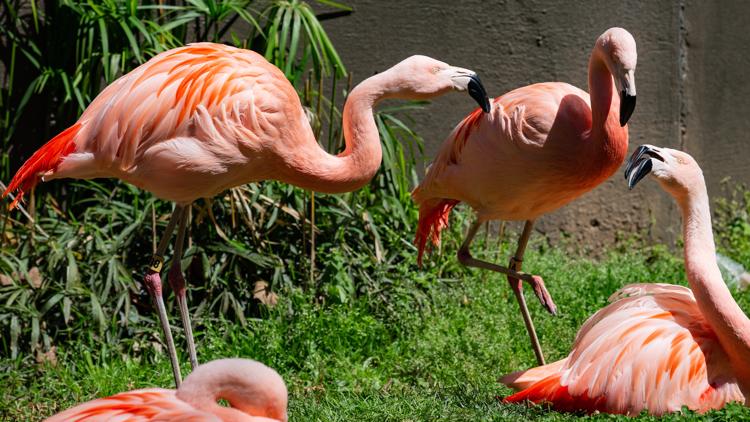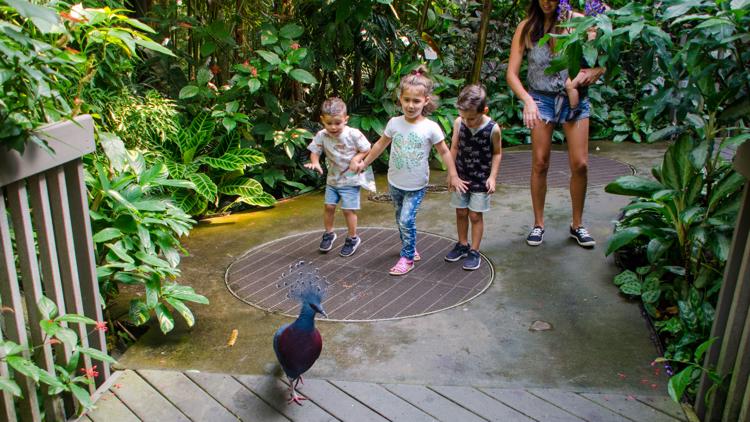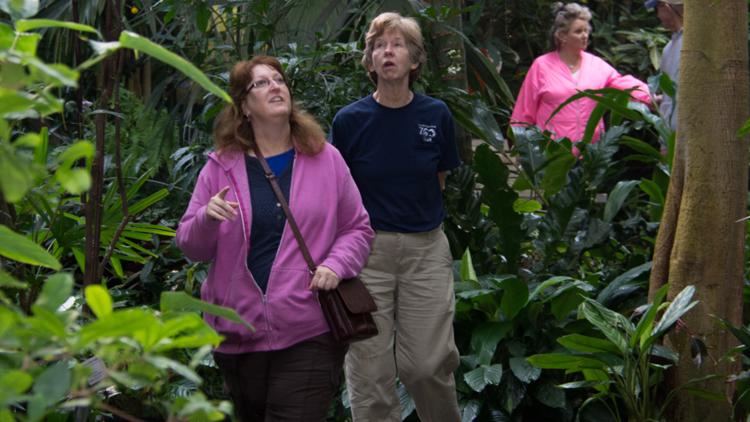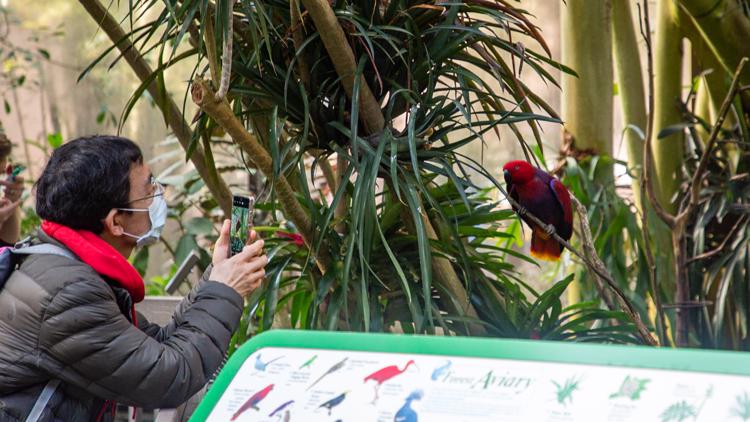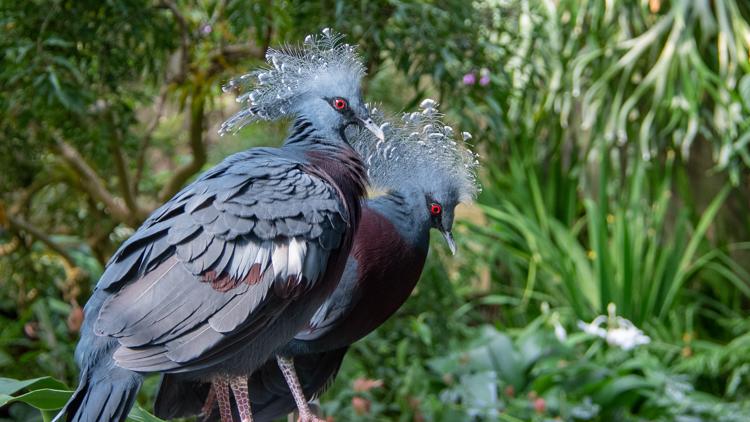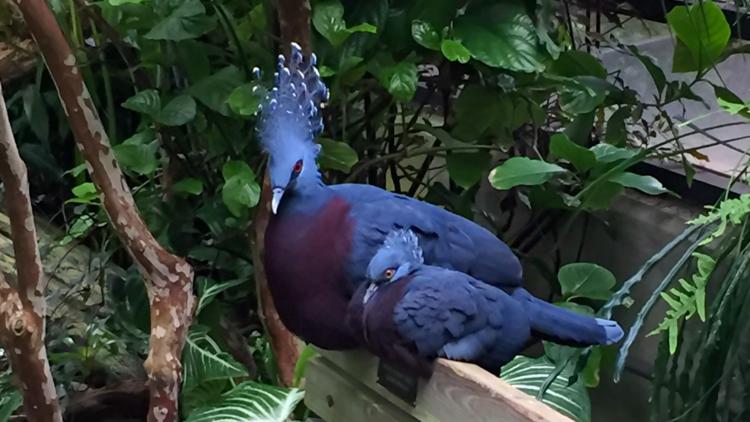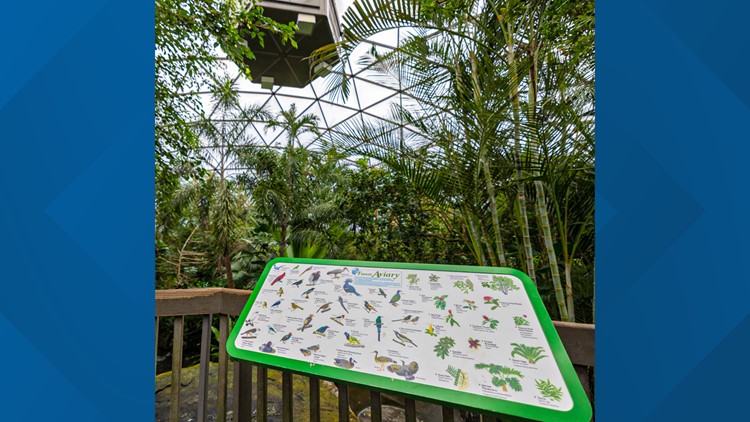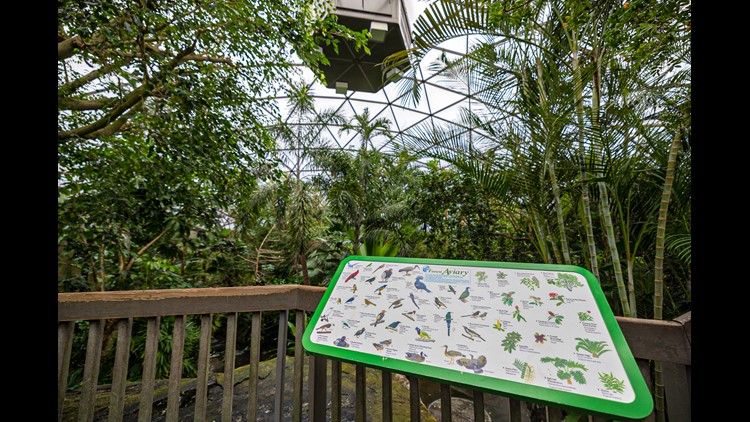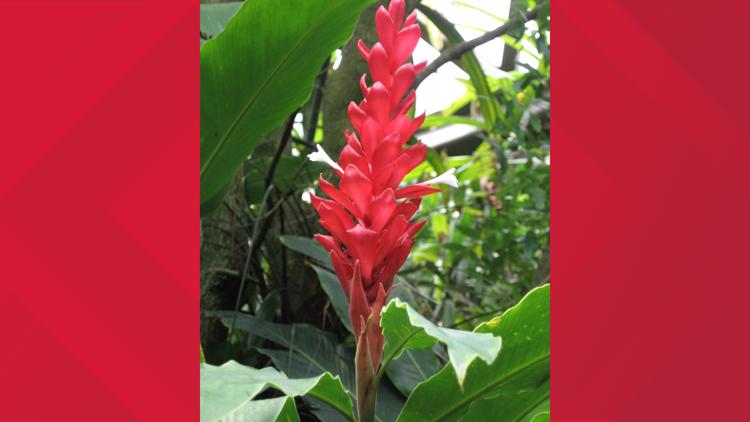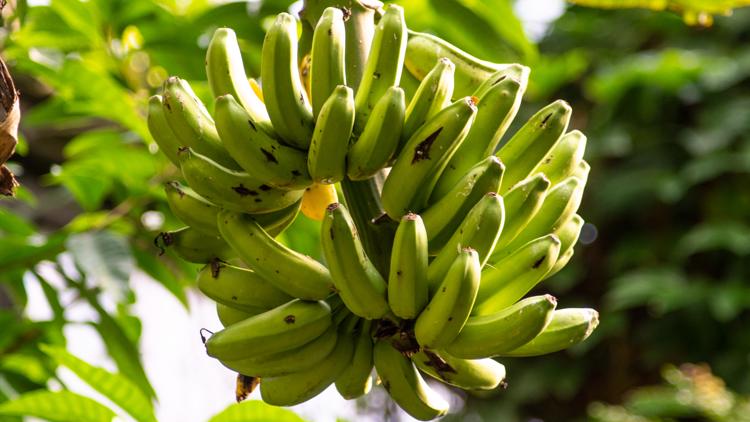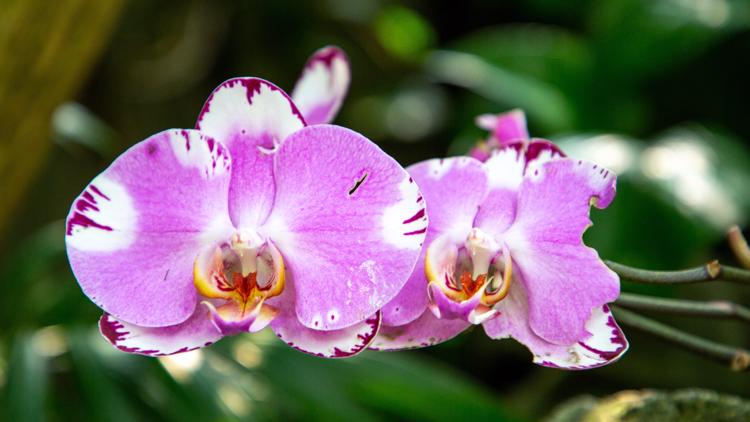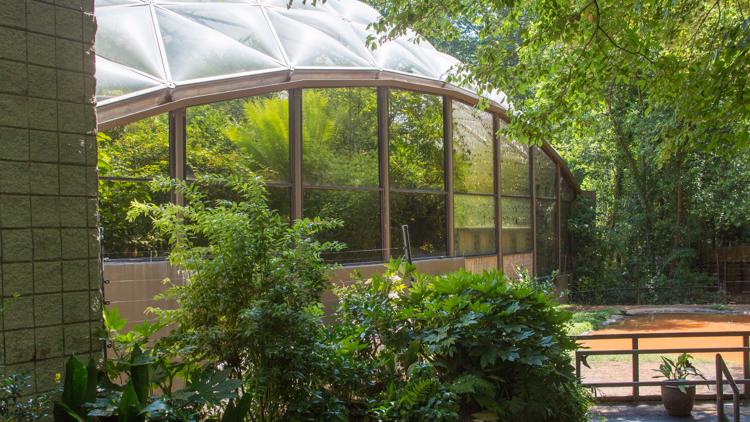ASHEBORO, N.C. — The North Carolina Zoo announced Thursday it will permanently close its Aviary Habitat.
The exhibit, built in the early 1980s, is a 40-year-old domed structure that requires “significant repairs due to the effects of high humidity and wet conditions,” the zoo said in a news release. The decision to close and take down the habitat was made by zoo leadership and the N.C. Department of Natural and Cultural Resources.
"For 40 years, the Zoo's Aviary offered a special place to connect with nature," said North Carolina Zoo's Director Pat Simmons. "The free-flying birds and tropical plants served as an oasis for many people - guests and staff alike. It was a heart-wrenching decision to close the Aviary; however, safety is our highest priority.”
Longtime park visitors were surprised to learn of the closure. It's a favorite exhibit for many.
"My son was really looking forward to it because he’s really into flying things. He was kind of bummed," Moana Turner said.
Guests will miss out on one last visit. The zoo closed the aviary to the public earlier this year due to bird flu concerns.
"We were looking forward to it we talked about coming back to see the birds another time. Then we learned it's closed permanently," Marcia Grimes said.
According to the zoo, 50 birds will be going to other zoos, and about 20 will stay. Those being relocated will go to Disney’s Animal Kingdom, Milwaukee Zoo, Moody Gardens and Bronx Zoo.
"To send out such a large number is very very difficult on staff," Bird curator Debbie Zombeck said. "People think you can go into the aviary with a net and catch the birds but that’s not the case at all."
Each bird must be caught in a trap cage lined with soft mesh. They are lured in with food.
Zoo leaders said they want the birds to be moved as soon as possible, but it’s a very involved process. Avian flu concerns slowed relocation. Once it gets hot in the summer, it will not be safe to move the birds, zoo leaders said.
Zombeck, who has been working at the aviary since 1993, said it's very emotional for her and the staff to see the aviary close down.
"It's very tough for the keepers and the supervisors that work with these birds every day. They really get attached to their animals," Zombeck said.
About 10 to 12 of the birds were already moved as of Thursday. Eight birds were moved to the desert habitat at the zoo.
Birds that are too old to move to a new zoo will be retired and stay on property. They will move to a breeding and holding facility once the area is upgraded. The zoo said it could take six to eight weeks for the facility to be ready.
Many of the birds that are being relocated are expected to move in May. The zoo is also working on a plan to move more than 2,000 plants of 450 species that live in the aviary.
There is no word on when demolition of the aviary will begin or what will be put in its place.
Zombeck said there will be new bird exhibits when the Asia part of the park opens in the next few years. The zoo is set to break ground on Asia later this year.
There are no plans to rebuild the aviary but visitors are hopeful.
"I'm a bird lover and I just want to have something that has to do with birds," Sophia Grimes said.
Zoo staff will not lose jobs, the zoo said. Some may be reassigned to other areas as plans are developed for changes in the animal and plant collections.
NC Zoo closes Aviary Habitat for good
"It is truly an immersive habitat, and guests often remarked that they felt as though they were really in a tropical forest. To hear the swoosh of a Victoria Crowned Pigeon as it flies by is magical," said the Zoo's Curator of Birds, Debbie Zombeck. "To watch the birds' natural behaviors as they forage for food, build nests and raise their young made the Aviary a must-see destination in the state."
Zombeck has been at the zoo for 29 years as a bird supervisor and then curator of birds.
The aviary closed earlier this year, on Jan. 24 due to recent threats from the Highly Pathogenic Avian Influenza. The HPAI virus is a highly contagious disease that can affect several species of birds. None of the zoo's birds have tested positive for the virus, the release said.
The zoo plans to take down the building. There are no immediate plans to rebuild the aviary, and future plans will require further study and budgetary considerations.

